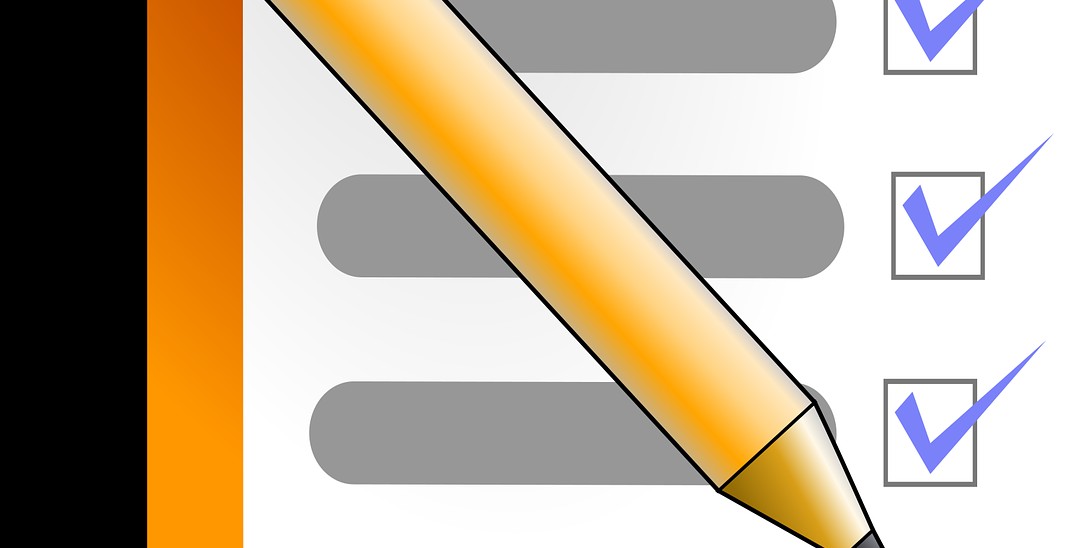How to Boost Your Productivity at Work: Techniques for Efficient Time Management
As a professional article writer and content creator, I have learned the importance of efficient time management in boosting productivity. In today’s fast-paced work environment, it’s easy to get overwhelmed with tasks and deadlines. However, by implementing the right techniques and strategies, you can increase your productivity and achieve more in less time.
The Benefits of Productivity
Being productive at work not only helps you accomplish more tasks, but it also improves your overall job satisfaction. When you’re able to complete your work on time and meet or exceed expectations, you feel more confident in your abilities and can enjoy a better work-life balance. Additionally, increased productivity can lead to career advancement opportunities and higher earnings potential.
Techniques for Efficient Time Management
There are several techniques you can use to manage your time more efficiently and boost your productivity at work. These include:
- Prioritizing tasks
- Creating a to-do list
- Using time-blocking techniques
- Minimizing distractions
- Taking breaks
By implementing these techniques, you can better manage your time, increase your productivity, and achieve your goals more efficiently.

Understanding the Importance of Time Management
Time management is a crucial skill that every individual should possess. It is the ability to manage and prioritize tasks effectively to maximize productivity and achieve goals within a specified time frame. Efficient time management helps to reduce stress, increase efficiency, and improve overall performance in both personal and professional life.
Benefits of Time Management
- Increased productivity: Effective time management helps to accomplish more tasks in less time, leading to increased productivity.
- Reduced stress: With proper time management, individuals can complete their tasks without feeling overwhelmed, leading to reduced stress levels.
- Improved decision-making: Time management skills enable individuals to prioritize their tasks, making it easier to make informed decisions.
- Enhanced focus: By managing their time efficiently, individuals can focus on their work without distractions, leading to better concentration and focus.
Consequences of Poor Time Management
Poor time management can have severe consequences, leading to missed deadlines, increased stress levels, and decreased productivity. It can also affect one’s personal and professional life, leading to strained relationships and poor performance.
Conclusion
Effective time management is a crucial skill that can help individuals achieve their goals, reduce stress, and improve overall performance. By managing their time efficiently, individuals can prioritize their tasks, accomplish more, and lead a more fulfilling life.

Identifying Your Priorities
One of the most important aspects of efficient time management is identifying your priorities. This involves creating a to-do list and categorizing tasks by importance and urgency.
Creating a To-Do List
A to-do list is a simple yet effective tool that can help you stay organized and focused throughout the day. Start by writing down all the tasks that you need to complete, including both work-related and personal tasks. Then, prioritize your list by ranking tasks in order of importance.
When creating your to-do list, it is important to be realistic about what you can accomplish in a given day. Avoid overloading your list with too many tasks, as this can lead to feelings of overwhelm and burnout. Instead, focus on completing a few key tasks each day that will move you closer to your goals.
Categorizing Tasks by Importance and Urgency
Once you have created your to-do list, it is important to categorize tasks by importance and urgency. This will help you prioritize your tasks and ensure that you are focusing on the most critical tasks first.
One method for categorizing tasks is the Eisenhower Matrix, which involves dividing tasks into four categories:
| Urgent and Important | Important but Not Urgent |
|---|---|
| Complete these tasks first | Schedule these tasks for later |
| Urgent but Not Important | Not Urgent and Not Important |
| Delegate these tasks to someone else | Avoid these tasks or complete them last |
By categorizing tasks in this way, you can ensure that you are focusing on the most critical tasks first and avoiding distractions that can derail your productivity.
Eliminating Distractions
One of the biggest challenges to productivity is distractions. In today’s fast-paced world, we are bombarded with emails, notifications, and other distractions that can take us away from our work. Here are some techniques for eliminating distractions:
Managing Emails and Notifications
Emails and notifications can be a major distraction. To manage them effectively:
- Limit the number of times you check your email and notifications each day.
- Turn off notifications for non-essential apps and emails.
- Use filters and folders to prioritize and organize your emails.
- Use an email management tool to help you stay on top of your inbox.
Minimizing Multitasking
While multitasking may seem like a way to get more done, it can actually be counterproductive. To minimize multitasking:
- Focus on one task at a time.
- Set specific goals for each task and work on them until they are complete.
- Use a timer to stay focused on one task for a set amount of time.
Creating a Distraction-Free Environment
Your environment can also be a source of distraction. To create a distraction-free environment:
- Find a quiet space to work.
- Put your phone on silent or in another room.
- Use noise-cancelling headphones if necessary.
- Eliminate clutter and keep your workspace organized.
By managing emails and notifications, minimizing multitasking, and creating a distraction-free environment, you can eliminate many of the distractions that can impede your productivity.
Using Time Management Techniques
When it comes to boosting productivity, time management is key. Here are three popular time management techniques that can help you make the most of your workday:
Pomodoro Technique
The Pomodoro Technique is a time management method developed by Francesco Cirillo in the late 1980s. It involves breaking your workday into 25-minute intervals, or “Pomodoros,” separated by short breaks. This technique helps you stay focused and avoid burnout, as well as providing a sense of accomplishment as you complete each Pomodoro.
- Set a timer for 25 minutes and focus on a single task until the timer goes off.
- Take a short break (5-10 minutes) after each Pomodoro.
- After four Pomodoros, take a longer break (15-30 minutes).
Eat That Frog Technique
The Eat That Frog Technique, popularized by Brian Tracy, is based on the idea that if you tackle your most challenging task first thing in the morning, the rest of your day will feel easier. The “frog” refers to the task you’re dreading the most, and eating it means getting it out of the way so you can focus on other tasks.
- Identify your most important task for the day.
- Do it first thing in the morning, before checking email or social media.
- Break down the task into smaller, more manageable steps if necessary.
Time Blocking Technique
The Time Blocking Technique involves dividing your workday into blocks of time dedicated to specific tasks. This technique helps you stay focused and avoid distractions, as well as ensuring that you make progress on all of your important tasks.
| Time Block | Task |
|---|---|
| 8:00-9:00am | Check email and respond to urgent messages |
| 9:00-10:00am | Work on project A |
| 10:00-10:30am | Take a break |
| 10:30-11:30am | Work on project B |
| 11:30am-12:30pm | Lunch break |
| 12:30-1:30pm | Attend meetings |
| 1:30-3:00pm | Work on project C |
| 3:00-3:30pm | Take a break |
| 3:30-4:30pm | Wrap up loose ends and plan for tomorrow |
By using these time management techniques, you can make the most of your workday and boost your productivity. Choose the technique that works best for you and give it a try!
Improving Your Work Habits
Improving your work habits is crucial for boosting productivity at work. Here are some effective techniques:
Taking Breaks Regularly
Taking breaks regularly is essential for maintaining productivity throughout the day. It may seem counterintuitive, but taking short breaks can actually help you get more done. Studies have shown that taking a 5-10 minute break every hour can improve focus and concentration, and reduce stress levels. So, make sure to take short breaks throughout the day to recharge and refocus.
Maintaining a Healthy Lifestyle
Maintaining a healthy lifestyle is also important for boosting productivity. Eating a healthy diet, getting enough sleep, and exercising regularly can all help improve your energy levels and focus. Make sure to eat a balanced diet that includes plenty of fruits, vegetables, and lean protein. Aim for at least 7-8 hours of sleep each night, and try to exercise for at least 30 minutes a day. By maintaining a healthy lifestyle, you’ll be better equipped to handle the demands of your job.
Avoiding Procrastination
Avoiding procrastination is another key to improving your work habits. Procrastination can lead to stress, missed deadlines, and decreased productivity. To avoid procrastination, try breaking large tasks into smaller, more manageable tasks. Set specific, achievable goals for each task, and reward yourself when you complete them. Also, try to eliminate distractions, such as social media or email notifications, while you’re working on important tasks.
By taking breaks regularly, maintaining a healthy lifestyle, and avoiding procrastination, you can improve your work habits and boost your productivity at work.
Conclusion
Productivity is an essential aspect of achieving success in any field, and efficient time management is the key to unlocking your full potential. The techniques discussed in this article are just a few of the many ways you can boost your productivity at work.
Firstly, prioritizing your tasks and breaking them down into smaller, more manageable chunks can help you stay focused and motivated throughout the day. Secondly, adopting a system to manage your time, such as the Pomodoro Technique, can help you stay on track and avoid distractions. Thirdly, taking breaks throughout the day can help you recharge and increase your overall productivity.
Additionally, it’s important to remember that productivity is not just about working harder, but also about working smarter. By identifying your most productive times of the day and aligning your tasks accordingly, you can make the most of your time and achieve better results.
In conclusion, implementing these techniques into your daily routine can help you become more productive and efficient at work. By taking control of your time and focusing on what matters most, you can achieve your goals and reach new levels of success.
